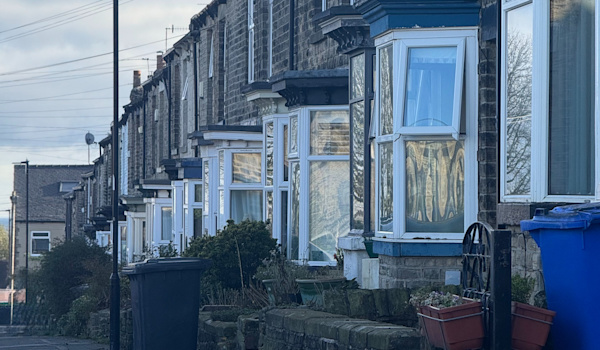We’re here to help when you’re dealing with a tricky debt or housing case for a client – find out how to get the best from our expert advice services for professionals.
Published September 2024
Front-line advisers face ever-increasing pressures of complex cases and tight deadlines, meaning access to quick and effective consultancy advice is more important than ever.
Shelter's Expert Housing Advice Service (EHAS) and Specialist Debt Advice Service (SDAS) provide expert housing and debt advice, supporting professionals and volunteers from organisations such as Citizens Advice, free-to-client advice agencies and local authorities.
There are steps you can take before you contact us to make sure you get the best possible advice for your client - helping us to help you.
Choose the right service
Sometimes it's straightforward to know which team to contact. If you have a debt question, like whether breathing space stops an eviction, that's for SDAS. If it's a housing question, like whether someone can be banned from the housing register because of rent arrears, it's EHAS.
But if you're dealing with a complex case or your client needs housing and debt advice - for example they are facing eviction for rent or mortgage arrears - it might be difficult to work out which team to contact. Your client might have other issues, such as probate or immigration concerns, which they also need help with.
Don't worry if you aren't sure. We'll tell you as soon as we can if you need to contact the other team. In some cases we'll transfer your enquiry.
If it's not something either team can advise on, we'll give you contact details of other advice services which might be better placed to help you.
Ask your client what outcome they want
It's really useful if you contact us with your client's aim in mind. If we know what your client wants to achieve, we'll tailor our advice and make sure it's relevant to them.
"For example, in disrepair cases, have you asked the client what they want?" says Mark, an EHAS adviser. "Do they want to stay in their home? Do they want to try and resolve the disrepair or seek compensation? Or do they need housing options advice? Knowing their aims helps us target our advice to you."
Without knowing the client's aims we might give a lot of advice the client doesn't need. This complicates our advice with options the client doesn't want to pursue. Kate from SDAS says, "if your client mentions they dispute a debt, but they're going to include it in a debt relief order application, they probably won't need to know about setting aside a county court judgment or making an affordability complaint."
Think about what you want to ask us
This might seem obvious - but what questions do you want to ask us?
If you have a list of questions ready when you contact us, that helps us advise you more quickly and efficiently, allowing you to get on with your job. Mark from EHAS says "having a good idea of what you want to ask at the start can help frame the call."
When you want a second opinion
Your client might have several different options, and you need to discuss the pros and cons with someone - for example, if you have doubts about whether a particular debt solution would be suitable for them.
If you can, discuss the case with a colleague or supervisor first, to help you focus on specific points you need to ask us about.
If you've thought about the options before you contact us, this helps us talk through everything you need so you get the most out of our advice.
When you need a sense check
Sometimes you might need to just sense check something you've read - legislation in particular can often be difficult to interpret. There could be grey areas. Other times, you might have found what seems to be conflicting information in two different places.
If you come to us prepared with the question you're having trouble with, we can check your understanding and help make sure you're giving the correct advice to your client.
Advice on legislation and case law
You might need help to understand a piece of legislation or case law. You might want to know if there's a case you can quote when challenging a creditor. Or you could be looking for a code of practice or guidance document, to help you advise your client about complaining to a local authority.
Before you contact us try to have a think about what would be most helpful. If you're looking for case law to support a review of a homelessness decision, for example, we can really focus on that to give a useful answer as quickly as possible.
Summarise the relevant facts
The information you give us helps us pinpoint the most appropriate and accurate advice for your client. In some cases, you may only have a little information. In others, it's hard to see the wood for the trees, especially when advising on multiple issues.
Try and pick out the most relevant facts from the client's case notes, along with anything you or the client has done so far. Luke, an SDAS adviser, says "you might not always know exactly which information you need, but if you can have a good stab at it and put it in a chronological order, that's really useful." Otherwise, we might speculate about unsuitable options, or give irrelevant information.
For example, if you ask us what your client's options are to deal with mortgage arrears, we normally need quite a bit of detail, such as when they took the mortgage out, how much they borrowed, and if there are other secured loans on the property.
Where a client is being evicted by their landlord, Andy from EHAS says, "if you know when the tenancy started, who the landlord is, and what notice was served, it's much easier to give accurate advice."
It's quicker for us to advise you if you have copies of correspondence, notices or court orders. If you haven't got the information we need, we might ask you to go back to your client with more questions, or to try and get hold of paperwork.
Note down research you've already done
It’s helpful for us to know what research and background reading you've already done. This helps us to avoid repeating information you've already found. Expert consultancy works best, says Luke from SDAS, when you "have a specific technical question, having done a bit of background reading before you get in touch."
If you've found some advice online or in a reference book, read an article, or looked at a particular piece of guidance or legislation, let us know.
You might have looked at Shelter Legal, the Debt Advice Handbook or Council Tax Handbook, or you might have found some guidance on Gov.uk.
The best way to get in touch
Once you're ready to contact us, think about the best way to get in touch. You can contact us by phone or webchat. For SDAS, you can also use our contact page to send us an email.
"If you don't really know what you want to ask, but you just want to discuss the case," says Steve from SDAS, "a phone call is a good way to get in touch."
Once you've explained your question we might suggest contacting you a different way, if we think that would be more helpful. "It doesn't matter if you come through to us on a webchat and we can't resolve it in the chat," says EHAS adviser Mark, "if we think a call's better then we'll just give you a call."
If you have a lot of documents for us to look at, we might ask you to send these by email. For SDAS you can attach documents when you submit a contact page enquiry. Remember to remove information which identifies your client, or we can't use them.



